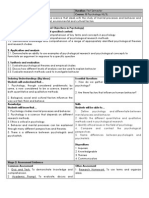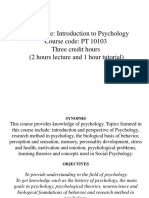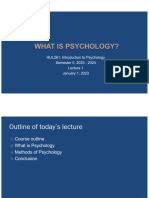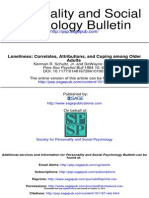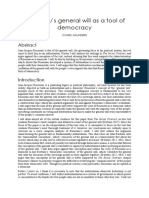0% found this document useful (0 votes)
64 views3 pagesIntro to Psychology Course Outline
This document outlines the course "Introduction to Psychology". The instructor is Ms. Iram Abraar Awan and her contact information is provided. The course will provide an overview of psychology as the scientific study of behavior, mental processes, and social interaction. Students will gain an understanding of human behavior, learn to interpret psychological tests, and conduct research in the social sciences. Topics covered will include the history of psychology, research methods, personality, psychometrics, social psychology, and psychological disorders. Assessment will include assignments, role plays, research projects, and papers. A 75% attendance is required and communication should be through email, not WhatsApp. Recommended textbooks are listed.
Uploaded by
Muhammad Luqman AhmadCopyright
© © All Rights Reserved
We take content rights seriously. If you suspect this is your content, claim it here.
Available Formats
Download as DOCX, PDF, TXT or read online on Scribd
0% found this document useful (0 votes)
64 views3 pagesIntro to Psychology Course Outline
This document outlines the course "Introduction to Psychology". The instructor is Ms. Iram Abraar Awan and her contact information is provided. The course will provide an overview of psychology as the scientific study of behavior, mental processes, and social interaction. Students will gain an understanding of human behavior, learn to interpret psychological tests, and conduct research in the social sciences. Topics covered will include the history of psychology, research methods, personality, psychometrics, social psychology, and psychological disorders. Assessment will include assignments, role plays, research projects, and papers. A 75% attendance is required and communication should be through email, not WhatsApp. Recommended textbooks are listed.
Uploaded by
Muhammad Luqman AhmadCopyright
© © All Rights Reserved
We take content rights seriously. If you suspect this is your content, claim it here.
Available Formats
Download as DOCX, PDF, TXT or read online on Scribd
/ 3
















